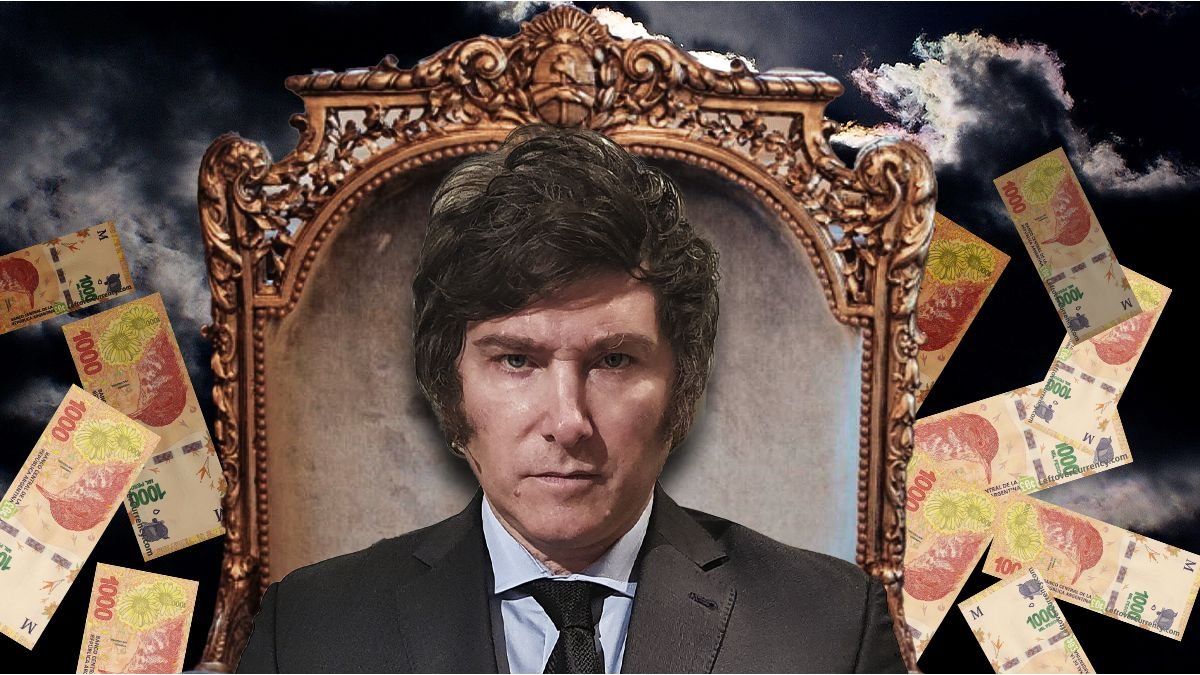“And rarely, if ever, do they remember having brought together economists from the Government and the opposition, and self-proclaimed independents in a common cause when seeing that the threat of horror is just around the corner: the possibility that Javier Milei, the candidate with the most votes in the primary elections, can reach the Presidency and apply dollarization as a recipe for the crisis, which would be “a false shortcut that will only lead us to a new and more dramatic frustration,” economists warn. .
Although many of the signatories of the text that states that “dollarization is a mirage” participated in public positions in the past, in different governments across the political spectrum, and others historically chose the independent path, they all sought to make it clear that in the The initiative did not take precedence over a political issue but rather the conviction that dollarization could be a serious threat to Argentines.
“I signed it because I agreed with what it warned,” he told Télam. Hernan Lacunzaformer Minister of Economy of the Nation and of the Province of Buenos Aires of the Cambiemos government, and former manager of the Central Bank of the Argentine Republic, who also assured that “dollarization is unfeasible; it will not occur voluntarily.”
For his part, the economist Daniel Marxtold Télam that “this is not something personal but rather takes reference from the experience in other countries; pointing out that the fact of dollarizing is not the solution to the economic problems that Argentina faces; the solution is very complex and must be addressed. several fronts,” he said.
And yet, “if this is addressed, dollarization is not the fundamental solution, and could lead to rigidities that could make daily life more difficult in Argentina,” said Marx, who claims to have been director of the Bank. Central during the presidency of Raúl Alfonsín, financial representative and former chief negotiator of the Argentine external debt of the Brady Plan, with Carlos Menem, and Secretary of Finance of the Ministry of Economy during 1999 and 2001, under the leadership of Domingo Cavallo.
Meanwhile, the economist and prestigious historian of the Faculty of Economic Sciences of the UBA, Mario Rapoportone of those who added his signature to the document, expressed that “dollarization is not convenient for the country because the exchange rate policy is fundamental, because the currency has to do with productivity.”
For example, Rapoport explains, “what could the United States Treasury care about how much Argentina produces to carry out an anti-cyclical policy? If today the United States raises interest rates and we are dollarized, our economy becomes mush, a new fixation exchange rate will cause deflation and a deepening of the crisis,” the specialist concluded.
“Those of us who signed this document – Economics professors and researchers in various public and private universities in the country and abroad, private sector economists, specialists and public policy makers – consider that an attempt at formal dollarization would be an ill-advised policy initiative to make in the face of the complex challenges that the Argentine economy must deal with,” the text warns.
The letter had an impact not only because of its content, but because it managed to bring together, in addition to those mentioned above, signatures of specialists with thoughts as opposite as those of Miguel Angel Broda, Ricardo Delgado, Diego Bossio, Pablo Gerchunoff, Gustavo Cañonero, Javier González Fraga, Martín Rapetti, Miguel Kiguel, José Lus Machinea, Eduardo Levi Yeyati, Andrés Borenstein, Marina dal Poggetto, José Maria Fanelli, Martín Rapetti,Federico Poli , Diego Petrecolla, Guillermo Rozenwurcel, Luis Secco, Paula Szenkman, and Lorenzo Sigautamong many other recognized brands.
Regarding the technical aspects, the economists expressed that “there are, first of all, practically insurmountable obstacles to its adoption: we lack the dollars necessary to rescue the monetary base and offer reasonable support to bank deposits (which, even so, would be left without a lender of last resort in the event of episodes of financial stress).
And they continued, “the existing proposals to repair this shortage of foreign currency involve absurd increases in public debt that would further compromise the perception of unsustainability of government finances. The only alternative, then, would be to dollarize at such a high exchange rate that it would cause an additional spiralization of inflation as a consequence of the collapse of real demand for money that would presumably trigger the mere announcement of moving in that direction.”
“Provoking a (hyper) inflationary outbreak does not seem like a very auspicious start to stabilizing the economy,” they stated.
Likewise, on the fiscal side, “it must be added the fact that monetary alchemies are not an adequate substitute for a firm commitment to the intertemporal balance of public accounts,” as, as they listed, occurred in past experiences in the country, and also in Ecuador, which could not avoid default, or the fiscal problems of more recent cases such as in El Salvador.
Lastly, “although not least, it should be considered that the formal dollarization of an economy is very difficult to reverse due to its high exit costs… which can be a breeding ground for “the anarchic proliferation of quasi-currencies to respond to a crisis of illiquidity would take with it all traces of the regime’s credibility,” they expressed.
And they concluded: “Let us not allow, out of myopia and desperation, the difficult situation in which we find ourselves to lead us to take a false shortcut that will only lead us to a new and more dramatic frustration,” concluded the letter from the Argentine economists who adhered, and whose number continues to grow.
Source: Ambito




